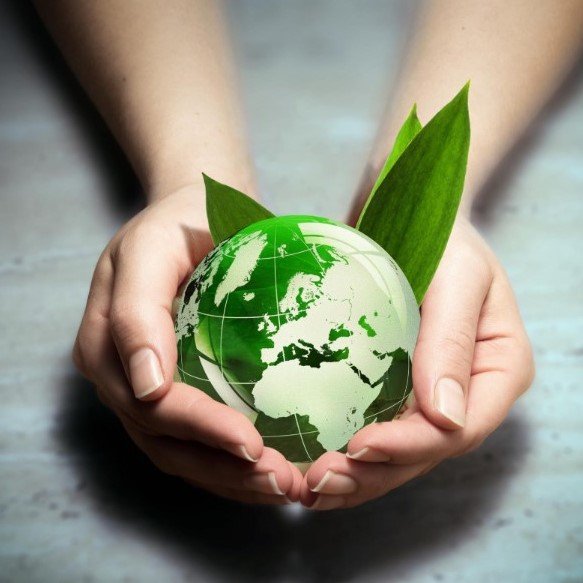A Sustainable World Will Require a Sustainable Individual
The world's sustainability challenges will affect us all in the future, and a sustainable world will require a sustainable individual.
Choosing to reduce your carbon footprint, recycling and eating plant-based are just a few ways that you can make a real impact on the environment. Hopefully, these ideas will encourage you to take action on your own.
The most important thing we can do to help our world reach a sustainable future is to reduce our carbon footprint. This includes everything from how much energy we use, how many cars we drive and the materials and waste we produce.
For instance, using public transport like trains or buses, living car-free and driving a low-emissions vehicle will dramatically decrease your carbon footprint.
Similarly, recycling plastics instead of sending them to landfills is a simple yet effective way to cut your footprint. When you recycle cardboard boxes, for example, it saves the energy needed to make new ones from scratch.
Getting rid of waste can also save money, since you don't have to buy more products or pay to dispose of them. Additionally, by voting with your dollars, you can help encourage manufacturers to use more recycled content.
There are many ways that we can be a sustainable individual. One of the most important is to recycle.
Recycling reduces the use of raw materials and saves energy. It also prevents pollution and conserves limited natural resources.
Sustainability refers to a set of principles that focus on the economy, society and the environment. It involves a triple bottom line approach, which means that companies consider their profit, people and planet when making decisions.
This triple bottom line also includes the social and economic development of communities. It includes a commitment to ensuring fair trade and good farming practices.
Studies have shown that people who are personally contacted by their neighbors are more likely to recycle. This is because they see their neighbors doing it and are motivated to do it themselves.
Whether you’re already a vegetarian or just getting started, it’s important to make sure your diet is healthy and sustainable. You can do this by buying and cooking only organic foods, choosing locally grown produce, and avoiding processed meats and eggs whenever possible.
A plant-based diet emphasizes vegetables, fruits, legumes, nuts, seeds, and whole grains. These foods are nutritionally adequate, nutrient-rich, and low in calories.
Eating a plant-based diet is also an eco-friendly option because it cuts down on the production of fossil fuels and uses less water. Moreover, it's a more healthful choice because it reduces your risk of heart disease, diabetes, and cancer.
According to Lauren Manaker, RD, eating plant-based is an effective way to meet your nutritional needs while also helping the planet. It can be as strict or flexible as you want it to be, and is a great option for anyone looking to improve their health.
Zero waste is the philosophy that every product or process should be designed to minimize the need for discard and to be able to be reused or recycled.
Whether you're starting your zero waste journey or simply trying to go more green, it's important to start by taking a good look at your lifestyle and habits. This includes not only your trash but also your energy consumption and transportation methods among other things.
A good way to start is by making a list of all the ways you could reduce your waste and take an honest look at your current practices. Then you can decide what changes you need to make and begin working towards a zero-waste life!
Going zero waste is a great way to cut down on your waste generation and improve your overall quality of life. It can also help you save money and avoid exposing yourself to toxic chemicals. Changing your lifestyle to be more sustainable is an important step in tackling climate change and saving our planet.

